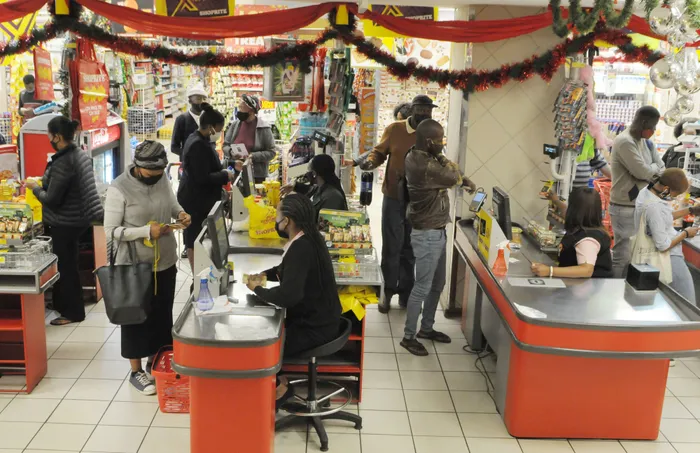Spending habits shift as South Africans adapt to a value-conscious market
CONSUMER

In this most recent quarter, card spending grew by just 7% while transaction volumes increased by 10%. While these figures are certainly positive, they mark a noticeable deceleration from the previous year, where spending and transactions soared by 9% and 12%, respectively.
Image: Tracey Adams/Independent Newspapers
The latest Absa Merchant Spend Analytics Report for the first quarter of 2025 has unveiled an unexpected trend in consumer behaviour: card spending growth is slowing, even as broader economic indicators show signs of recovery.
This duality reflected a cautious consumer mindset as South Africans navigate new economic realities.
In this most recent quarter, card spending grew by just 7% while transaction volumes increased by 10%. While these figures are certainly positive, they mark a noticeable deceleration from the previous year, where spending and transactions soared by 9% and 12%, respectively.
Furthermore, the average value of each card transaction has dipped by 3% year-on-year, indicating that consumers are indeed still spending, but they are opting for smaller purchases.
“The Q1 data reveals that the consumer is not necessarily spending less, they’re making smarterpurchasing decisions,” said Isana Cordier, Head: ConsumerSector, Absa CIB.
“This shift signals a clear directive for businesses, which is to adapt to the value-based approach by offering competitive pricing, flexible purchase options, and meaningful loyaltystrategies to stay relevant and resilient in a price-conscious market.”
Interestingly, significant growth has been observed in categories outside the typical top-ten spend areas. Leading the charge is warehousing and storage, a trend attributed to the ongoing immigration and "semigration" patterns shaping the South African landscape.
Closely following are expenditures in the education sector, driven by the seasonal back-to-school rush, as well as a sustained interest in gambling, largely propelled by online platforms’ rise.
However, the digital print media sector appears to have plateaued, with both books and newspapers continuing their decline, highlighting a clear pivot towards digital consumption.
Despite the economic pressures, consumers are still investing modestly in the home and garden, as well as health and beauty sectors, suggesting a desire to maintain comfort and personal care even when funds are tight.
Online shopping emerges as a dominant force in the current market landscape, with its share of total card spending climbing from 7% in Q1 2022 to 10% in Q1 2025. Although in-store spending still constitutes the bulk of transactions, its slow decline reflects a growing consumer comfort with digital shopping options.
This digital shift is particularly pronounced among younger, tech-savvy Gen Z consumers, whose trust in online transactions continues to bolster these figures.
Notably, online transactions in commercial and industrial services surged by an impressive 155% year-on-year, alongside substantial growth in categories like home and garden (23%) and food (20%), reinforcing that essential everyday purchases dominate e-commerce.
The report also reveals a gradual decline in debit card usage amidst stabilising consumer activity.
Credit card transactions experienced a growth of 9%, albeit down from 12% in the same period last year, while debit card growth slowed to 5%, compared to the previous year's 8%.
This change illustrates that consumers are increasingly leaning towards credit options to manage expenses—possibly as a temporary measure to navigate the rising costs and tighter budgets.
As the report illustrates, understanding evolving consumer behaviour is vital in a persistently uncertain economic environment. While economic recovery is on the horizon, the trait of price sensitivity remains paramount among South African shoppers.
“As consumer priorities shift, businesses must adapt to changing behaviours, focusing on value, digitalenablement and the evolving needs of the modern shopper,” Cordier said.
Visit: www.businessreport.co.za